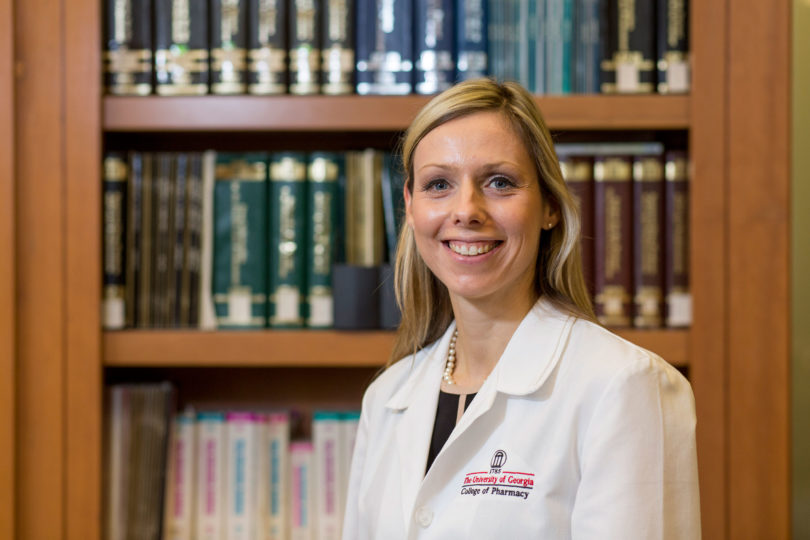Elisabeth “Lilian” Sattler came to the University of Georgia on a mission.
After working for two years as a licensed pharmacist in her native Germany—filling prescriptions and counseling patients on the proper use of medications—she couldn’t escape the feeling that something was missing, that she could do more to help her patients live healthier, happier lives.
But what her patients needed wasn’t a new wonder drug; they needed help learning how to eat.
“I noticed in my own practice that many of my patients had no real understanding of appropriate nutrition for their medical needs,” Sattler said. “Some of these people were already living with cardiovascular diseases like heart failure or hypertension, and although I knew from my training and research that nutritional guidance can have a profound impact on these conditions and pharmacists receive nutrition-related questions all the time, most pharmacists aren’t trained to counsel their patients about nutrition.”
So, Sattler left her practice in Germany and came to UGA in 2009 to pursue a doctoral degree in foods and nutrition, where she learned new ways to steer patients toward a healthier lifestyle.
After graduation, Sattler was recruited by UGA as part of the Presidential Interdisciplinary Hiring Initiative. Launched in late 2013 by President Jere W. Morehead, this initiative has strengthened UGA’s existing research and teaching strengths and fostered new partnerships across campus. It has brought 15 faculty to campus in the past three years.
These faculty join other outstanding faculty recently recruited through the Presidential Informatics Hiring Initiative and the Presidential Extraordinary Research Hiring Initiative.
“The challenges facing our state and the world are becoming increasingly more complex,” said Morehead. “It is the role of the University of Georgia as a leading research university to respond to these challenges with innovative solutions. The faculty members hired through these initiatives are positioned to build partnerships across traditional disciplinary lines to tackle society’s most pressing issues.”
Additional support for interdisciplinary research endeavors has come in the form of a new seed grant program that will provide grants to multidisciplinary teams of researchers whose projects focus on UGA’s research strengths. As of March 23, 160 faculty have applied for grants, and awards will be announced in May.
Now an assistant professor with joint appointments in the College of Pharmacy and the College of Family and Consumer Sciences, Sattler is delivering on the promise of this hiring initiative by bridging the gap between two critical human health fields.
She teaches her first year PharmD students the essentials of nutrition and lifestyle intervention for disease management, and she teaches nutrition graduate and undergraduate students about pharmacotherapy for a variety of diet-related diseases.
In addition to learning how to counsel patients, Sattler’s PharmD students create video tutorials that teach practicing pharmacists about the essentials of nutrition and disease. From these tutorials, Sattler is planning to develop an online continuing education and outreach program for pharmacists in Georgia.
“My teaching mission is closely aligned with my research, which focuses on disparities in cardiovascular health, particularly in older populations,” she said. “I’m working on a number of projects with researchers and doctors at UGA Medical Partnership and Emory University, and I have expanded this work internationally through ongoing collaborations and funding with researchers at the University of Liverpool in England after obtaining the UGA/University of Liverpool seed grant during my first year.”
These partnerships, combined with Sattler’s personal experience working with patients in Georgia, have convinced her that pharmacists could serve as a new front line in the fight for better health, particularly for patients from low-income areas who lack access to care.
“I am convinced that teaching pharmacists how to counsel patients on evidence-based nutrition can make an impact on health disparities by giving patients in need the tools to achieve better disease self-management. A lot of patients do not have access to dietitians, and unlike most doctors, pharmacists are open to the public; people can come in any time and ask us for help,” Sattler said. “But to really help these patients, we have to teach our students to address these issues appropriately, to provide more patient-centered comprehensive care. And I think we have to take an interdisciplinary approach to make that work.”








